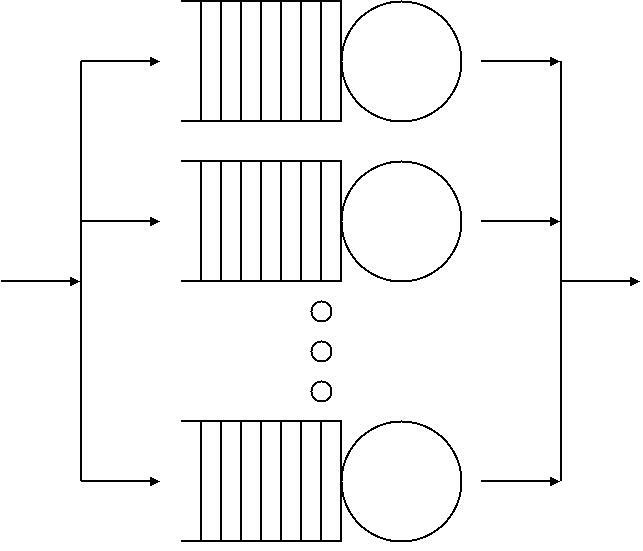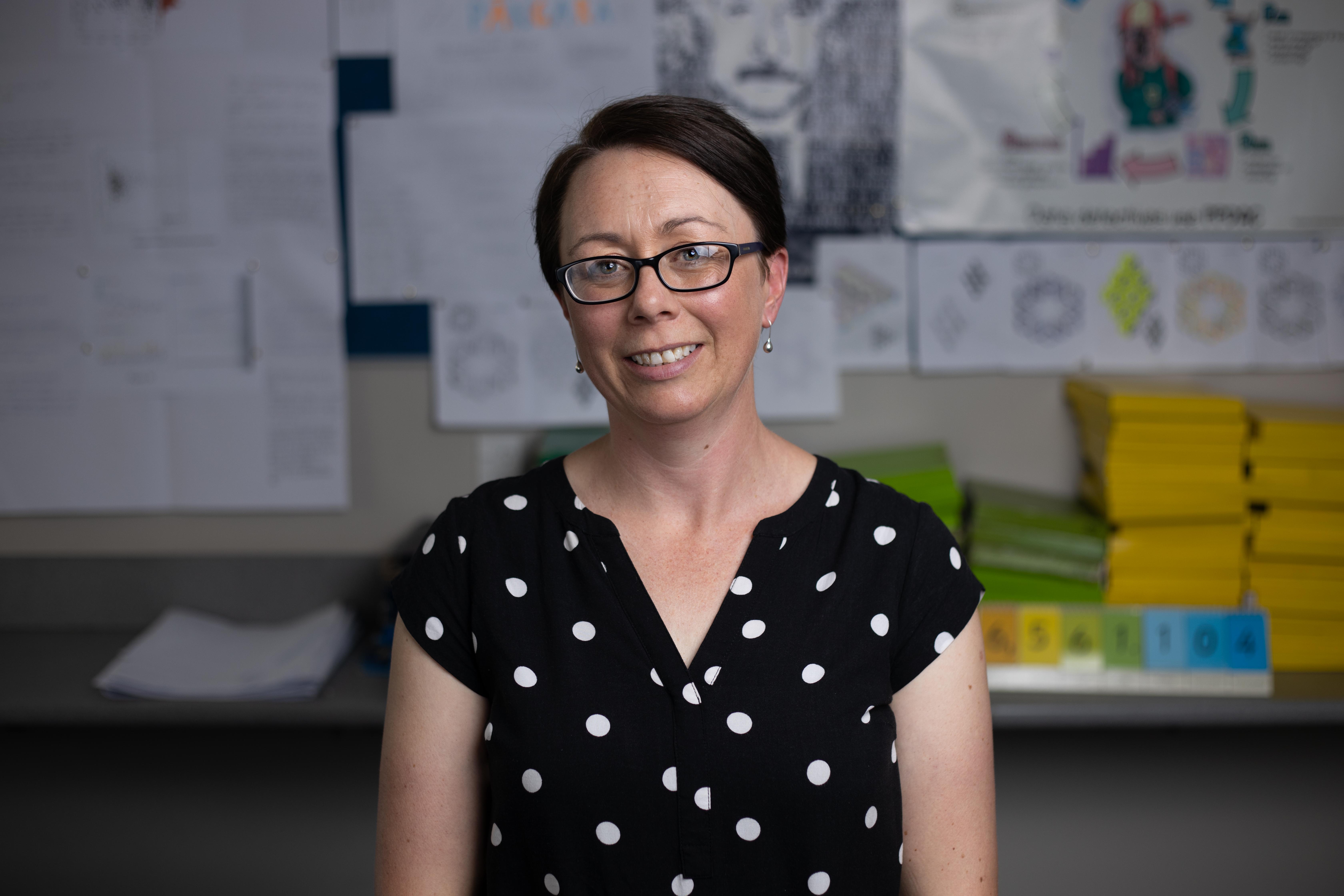|
Ilze Ziedins
Ilze Brigita Ziedins is a New Zealand statistician whose research concerns the queueing theory of stochastic networks, and the use of this theory to model problems in health care, communications, transportation, and climate change. She is an associate professor of statistics at the University of Auckland. Education and career Ziedins is the daughter of Rudolfs Ziedins (1924–2012), a philosopher from Latvia who became a professor at the University of Waikato. She went to university at Waikato, and then travelled to the University of Cambridge in England for doctoral study, completing her PhD in 1989. Her dissertation, ''Stochastic Models of Traffic in Star and Line Networks'', was supervised by Frank Kelly. After holding a research fellowship in Girton College, Cambridge and a lecturer position at Heriot-Watt University in England, Ziedins joined the academic staff of Auckland University in 1993. Recognition Ziedins is a Fellow of the New Zealand Mathematical Society. As a me ... [...More Info...] [...Related Items...] OR: [Wikipedia] [Google] [Baidu] |
Queueing Theory
Queueing theory is the mathematical study of waiting lines, or queues. A queueing model is constructed so that queue lengths and waiting time can be predicted. Queueing theory is generally considered a branch of operations research because the results are often used when making business decisions about the resources needed to provide a service. Queueing theory has its origins in research by Agner Krarup Erlang, who created models to describe the system of incoming calls at the Copenhagen Telephone Exchange Company. These ideas were seminal to the field of teletraffic engineering and have since seen applications in telecommunications, traffic engineering, computing, project management, and particularly industrial engineering, where they are applied in the design of factories, shops, offices, and hospitals. Spelling The spelling "queueing" over "queuing" is typically encountered in the academic research field. In fact, one of the flagship journals of the field is '' Queue ... [...More Info...] [...Related Items...] OR: [Wikipedia] [Google] [Baidu] |
Prime Minister's Science Prizes
The Prime Minister's Science Prizes are awarded yearly by the Prime Minister of New Zealand. They were first awarded in 2009 in order to raise the profile and prestige of science among New Zealanders. The 2019 awards were presented in early 2020. Awards The Prime Minister's Science Prize Awarded to an individual or a team, the prize recognises a scientific discovery or achievement that has a significant economic, health, social or environmental impact on New Zealand or internationally in the past five years. The total prize is NZD 500,000. Prizewinners * 2023: Hereditary Diffuse Gastric Cancer Team, led by Parry Guilford from the University of Otago * 2022: The National Institute for Stroke and Applied Neurosciences, led by Valery Feigin from Auckland University of Technology * 2021: The Neonatal Glucose Studies Team, led by Jane Harding * 2020: 24 research scientists doing COVID-19 modelling at Te Pūnaha Matatini *2019: Antarctic sea rise research by scientists at Vi ... [...More Info...] [...Related Items...] OR: [Wikipedia] [Google] [Baidu] |
Alumni Of The University Of Cambridge
Alumni (: alumnus () or alumna ()) are former students or graduates of a school, college, or university. The feminine plural alumnae is sometimes used for groups of women, and alums (: alum) or alumns (: alumn) as gender-neutral alternatives. The word comes from Latin, meaning nurslings, pupils or foster children, derived from "to nourish". The term is not synonymous with "graduates": people can be alumni without graduating, e.g. Burt Reynolds was an alumnus of Florida State University but did not graduate. The term is sometimes used to refer to former employees, former members of an organization, former contributors, or former inmates. Etymology The Latin noun means "foster son" or "pupil". It is derived from the Latin verb "to nourish". Separate, but from the same root, is the adjective "nourishing", found in the phrase '' alma mater'', a title for a person's home university. Usage in Roman law In Latin, is a legal term (Roman law) to describe a child placed in foster ... [...More Info...] [...Related Items...] OR: [Wikipedia] [Google] [Baidu] |
University Of Waikato Alumni
A university () is an educational institution, institution of tertiary education and research which awards academic degrees in several Discipline (academia), academic disciplines. ''University'' is derived from the Latin phrase , which roughly means "community of teachers and scholars". Universities typically offer both undergraduate education, undergraduate and postgraduate education, postgraduate programs. The first universities in Europe were established by Catholic Church, Catholic monks. The University of Bologna (), Italy, which was founded in 1088, is the first university in the sense of: *being a high degree-awarding institute. *using the word (which was coined at its foundation). *having independence from the ecclesiastic schools and issuing secular as well as non-secular degrees (with teaching conducted by both clergy and non-clergy): grammar, rhetoric, logic, theology, canon law and notarial law.Hunt Janin: "The university in medieval life, 1179–1499", McFarland, 2 ... [...More Info...] [...Related Items...] OR: [Wikipedia] [Google] [Baidu] |
New Zealand Women Statisticians
New or NEW may refer to: Music * New, singer of K-pop group The Boyz * ''New'' (album), by Paul McCartney, 2013 ** "New" (Paul McCartney song), 2013 * ''New'' (EP), by Regurgitator, 1995 * "New" (Daya song), 2017 * "New" (No Doubt song), 1999 * "new", a song by Loona from the 2017 single album '' Yves'' * "The New", a song by Interpol from the 2002 album ''Turn On the Bright Lights'' Transportation * Lakefront Airport, New Orleans, U.S., IATA airport code NEW * Newcraighall railway station, Scotland, station code NEW Other uses * ''New'' (film), a 2004 Tamil movie * New (surname), an English family name * NEW (TV station), in Australia * new and delete (C++), in the computer programming language * Net economic welfare, a proposed macroeconomic indicator * Net explosive weight, also known as net explosive quantity * Network of enlightened Women, an American organization * Newar language, ISO 639-2/3 language code new * Next Entertainment World, a South Korean media company ... [...More Info...] [...Related Items...] OR: [Wikipedia] [Google] [Baidu] |
Living People
Purpose: Because living persons may suffer personal harm from inappropriate information, we should watch their articles carefully. By adding an article to this category, it marks them with a notice about sources whenever someone tries to edit them, to remind them of WP:BLP (biographies of living persons) policy that these articles must maintain a neutral point of view, maintain factual accuracy, and be properly sourced. Recent changes to these articles are listed on Special:RecentChangesLinked/Living people. Organization: This category should not be sub-categorized. Entries are generally sorted by family name In many societies, a surname, family name, or last name is the mostly hereditary portion of one's personal name that indicates one's family. It is typically combined with a given name to form the full name of a person, although several give .... Maintenance: Individuals of advanced age (over 90), for whom there has been no new documentation in the last ten ... [...More Info...] [...Related Items...] OR: [Wikipedia] [Google] [Baidu] |
Year Of Birth Missing (living People)
A year is a unit of time based on how long it takes the Earth to orbit the Sun. In scientific use, the tropical year (approximately 365 solar days, 5 hours, 48 minutes, 45 seconds) and the sidereal year (about 20 minutes longer) are more exact. The modern calendar year, as reckoned according to the Gregorian calendar, approximates the tropical year by using a system of leap years. The term 'year' is also used to indicate other periods of roughly similar duration, such as the lunar year (a roughly 354-day cycle of twelve of the Moon's phasessee lunar calendar), as well as periods loosely associated with the calendar or astronomical year, such as the seasonal year, the fiscal year, the academic year, etc. Due to the Earth's axial tilt, the course of a year sees the passing of the seasons, marked by changes in weather, the hours of daylight, and, consequently, vegetation and soil fertility. In temperate and subpolar regions around the planet, four seasons a ... [...More Info...] [...Related Items...] OR: [Wikipedia] [Google] [Baidu] |
Te Pūnaha Matatini
Te Pūnaha Matatini is the New Zealand Centre of Research Excellence for complex systems. Te Pūnaha Matatini is funded by the Tertiary Education Commission, hosted by the University of Auckland, and works in partnership with fifteen universities and organisations. Te Pūnaha Matatini brings together 100 principal investigators from tertiary institutions, government institutes, private sector organisations and marae communities from throughout New Zealand. Establishment The New Zealand Government developed the Centres of Research Excellence (CoREs) in 2001 based on "international evidence that research is more likely to be successful (in terms of quality, relevance and impact) if there is a critical mass of researchers who work together to share skills, knowledge and resources". In 2012, two researchers, Shaun Hendy and Dion O'Neale began discussing how a collaborative, complex research system could make an impact, and in 2013 a proposal was submitted to the Centre of Researc ... [...More Info...] [...Related Items...] OR: [Wikipedia] [Google] [Baidu] |
Stochastic Network
Queueing theory is the mathematical study of waiting lines, or queues. A queueing model is constructed so that queue lengths and waiting time can be predicted. Queueing theory is generally considered a branch of operations research because the results are often used when making business decisions about the resources needed to provide a service. Queueing theory has its origins in research by Agner Krarup Erlang, who created models to describe the system of incoming calls at the Copenhagen Telephone Exchange Company. These ideas were seminal to the field of teletraffic engineering and have since seen applications in telecommunications, traffic engineering, computing, project management, and particularly industrial engineering, where they are applied in the design of factories, shops, offices, and hospitals. Spelling The spelling "queueing" over "queuing" is typically encountered in the academic research field. In fact, one of the flagship journals of the field is ''Queueing ... [...More Info...] [...Related Items...] OR: [Wikipedia] [Google] [Baidu] |
New Zealand Mathematical Society
The New Zealand Mathematical Society is a New Zealand based learned society of mathematicians. It is listed by the Royal Society of New Zealand as the affiliate organisation responsible for mathematics research, and by the International Mathematical Union as the national mathematical society of New Zealand. The total membership in the society has varied from approximately 100 soon after its 1974 foundation to between 200 and 300 at its 25th anniversary in 1999. The NZMS has its origins in the annual New Zealand Mathematics Colloquium, held beginning in 1966,. and in a 1967 visit to New Zealand by Bernhard Neumann during which he promoted connections between the New Zealand and Australian mathematics communities.. A drafting committee for the new society was formed at the 1973 colloquium, despite some opposition from the RSNZ's National Committee for Mathematics, and the society was founded in 1974 with David Vere-Jones as founding president. The society publishes the ''Newsletter ... [...More Info...] [...Related Items...] OR: [Wikipedia] [Google] [Baidu] |





